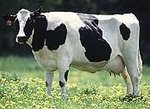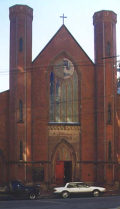
| Insightful Info |

 Zinc Deficiency: A Multitude of Diseases Ellen White identified a host of diseases resulting from a practice
she called "secret vice." It is now known that the very diseases she mentioned
result from zinc deficiency, a deficiency associated with "secret vice." Zinc Deficiency: A Multitude of Diseases Ellen White identified a host of diseases resulting from a practice
she called "secret vice." It is now known that the very diseases she mentioned
result from zinc deficiency, a deficiency associated with "secret vice." |
|

| Her Beliefs |

 Eschatology: The Millennium Ellen White's eschatology was most definitely pre-millennial. She believed in a
millennium composed of a literal 1000 years, immediately preceded by a literal second coming
of Christ. However, her view of what takes place during the millennium was somewhat
different from that of many evangelicals. See if you think her views were biblical or not. Eschatology: The Millennium Ellen White's eschatology was most definitely pre-millennial. She believed in a
millennium composed of a literal 1000 years, immediately preceded by a literal second coming
of Christ. However, her view of what takes place during the millennium was somewhat
different from that of many evangelicals. See if you think her views were biblical or not. |
|

|
| "Worry is blind, and cannot discern the future; but
Jesus sees the end from the beginning. In every difficulty He has His
way prepared to bring relief. Our heavenly Father has a thousand ways
to provide for us, of which we know nothing. Those who accept the
one principle of making the service and honor of God supreme will find
perplexities vanish, and a plain path before their feet." | | (Desire of Ages 330) |
|
|
|
|  |
| Fulfilled or Fallacy? |

 Mad Cow Disease Long ago, Ellen White predicted that the day would come when all animal products would be unsafe. Was she right on that one, given recent news stories on Mad Cow Disease? Was she wrong, or just lucky? Read the information we've collected, and tell us what you think. Mad Cow Disease Long ago, Ellen White predicted that the day would come when all animal products would be unsafe. Was she right on that one, given recent news stories on Mad Cow Disease? Was she wrong, or just lucky? Read the information we've collected, and tell us what you think. |
|


| Life Sketch Snippet |

 Methodist Brethren Oppose Second Coming . . . Elder B. asked me if it would not be more pleasant to live a long life
of usefulness, doing others good, than to have Jesus come speedily . . . .
He then inquired if I would not rather die peacefully upon my bed than to pass through the
pain of being changed, while living, from mortality to immortality. [more] Methodist Brethren Oppose Second Coming . . . Elder B. asked me if it would not be more pleasant to live a long life
of usefulness, doing others good, than to have Jesus come speedily . . . .
He then inquired if I would not rather die peacefully upon my bed than to pass through the
pain of being changed, while living, from mortality to immortality. [more] |
|

|


